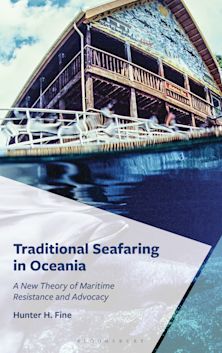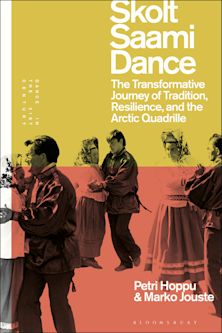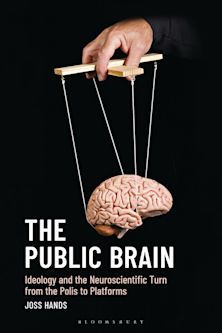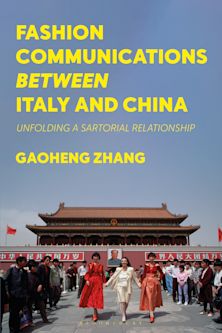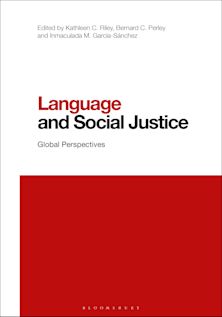- Home
- ACADEMIC
- Anthropology
- Cultural Anthropology
- Constructing Vernacular Culture in the Trans-Caribbean
Constructing Vernacular Culture in the Trans-Caribbean
Holger Henke (Anthology Editor) , Karl-Heinz Magister (Anthology Editor) , Anton Allahar (Contributor) , Carol Bailey (Contributor) , Curwen Best (Contributor) , Melvin L. Butler (Contributor) , Raphael Dalleo (Contributor) , Maarit Forde (Contributor) , Wendy Knepper (Contributor) , Patricia Mohammed (Contributor) , Lyndon Phillip (Contributor) , Elaine Savory (Contributor) , Bettina E. Schmidt (Contributor) , Mimi Sheller (Contributor) , Tanya Shields (Contributor) , Constance R. Sutton (Contributor) , Mies van Niekerk (Contributor)
Constructing Vernacular Culture in the Trans-Caribbean
Holger Henke (Anthology Editor) , Karl-Heinz Magister (Anthology Editor) , Anton Allahar (Contributor) , Carol Bailey (Contributor) , Curwen Best (Contributor) , Melvin L. Butler (Contributor) , Raphael Dalleo (Contributor) , Maarit Forde (Contributor) , Wendy Knepper (Contributor) , Patricia Mohammed (Contributor) , Lyndon Phillip (Contributor) , Elaine Savory (Contributor) , Bettina E. Schmidt (Contributor) , Mimi Sheller (Contributor) , Tanya Shields (Contributor) , Constance R. Sutton (Contributor) , Mies van Niekerk (Contributor)
This product is usually dispatched within 3 days
- Delivery and returns info
-
Free US delivery on orders $35 or over
You must sign in to add this item to your wishlist. Please sign in or create an account
Description
In this volume, the editors and authors strive to understand the evolving Trans-Caribbean as a discontinuous, displacing and displaced, transnational space. It considers the imagined community in the islands as its psycho-social homeland, while simultaneously pursuing different cultural strategies of redefining and resisting colonial "homeland" conventions (which Kamau Brathwaite appropriately termed the "inner plantation"). Thus, the Trans-Caribbean is suspended in a double-dialectic, which opposes both the hegemonic metropolitan space inhabited, as well as the romanticized, yet colonialized, "inner plantation," whose transcendence via migration perpetually turns out to be an illusion. Given this, cultural production and migration remain at the vortex of the Trans-Caribbean.
The construction of cultural products in the Trans-Caribbean-understood as a collection of social and new migratory practices-both reflects and contests post-colonial metropolitan hegemonies. Following Arjun Appadurai's distinction, these homogenizing and heterogenizing counter-trends in Trans-Cariabbean spaces can be observed through cultural transactions manifesting themselves as ethnoscapes, mediascapes, technoscapes, financescapes, cityscapes, ideoscapes, etc.
For the purposes of this book the editors invited anthropologists, sociologists, political scientists, linguists, liberal arts and gender studies specialists, as well as cultural and literary historians to begin drawing some of the diasporic trajectories on the huge canvas of cultural production throughout the Trans-Caribbean.Constructing Vernacular Culture in the Trans-Caribbean will find its audience among scholars in cultural studies, migration, literary theory, and cultural criticism who have a special interest in Caribbean and Latin American Studies, as well as among students and scholars of migration and postcolonialism and postmodernity in general.
Table of Contents
Chapter 2 Acknowledgment
Chapter 3 Introduction: Constructing Vernacular Culture in the Trans-Caribbean
Part 4 Part I. (Re-)Creating Homes in the Vernacular
Chapter 5 Chapter 1. Premigration Legacies and Transnational Identities: Afro-Surinamese and Indo-Surinamese in the Netherlands
Chapter 6 Chapter 2. The Many Voices of Caribbean Culture in New York City
Chapter 7 Chapter 3. Family Reunion Rituals of African-Caribbean Transnational Families: Instilling an Historical and Diasporic Consciousness
Part 8 Part II. Performing Identitites
Chapter 9 Chapter 4. Dancing Around Dancehall: Popular Music and Pentacostal Identity in Transnational Jamaica and Haiti
Chapter 10 Chapter 5. Rituals, Journeys, and Modernity: Spiritual Baptists in New York
Chapter 11 Chapter 6. Performing "Difference": Gossip in Olive Senior's Short Stories
Chapter 12 Chapter 7. "This is my vibes": Legitimizing Vernacular Expressions in Caribana
Part 13 Part III. Writing Self, Other and (Trans-)Nation in the Trans-Caribbean
Chapter 14 Chapter 8. Patrick Chamoiseau's Seascapes and the Trans-Caribbean Imaginary
Chapter 15 Chapter 9. "A Local Habitation and a Name": Travelers, Migrants, Nomads of "Caribbean New York" in Colin Channer'sWaiting in Vain
Chapter 16 Chapter 10. Playing Both Home and Away: National and Transnational Identities in the Work of Bruce St. John
Chapter 17 Chapter 11. The Amerindian Transnational Experience in Pauline Melville'sThe Ventriloquist's Tale
Chapter 18 Chapter 12. Readings from Aquí y Allá: Music, Commercialism, and the Latino-Caribbean Transnational Imaginary
Part 19 Part IV. The (Trans-)Nation (Dis-)Embodied
Chapter 20 Chapter 13. Like Sugar in Coffee: Third Wave Feminism and the Caribbean
Chapter 21 Chapter 14. Work That Body: Sexual Citizenship and Embodied Freedom
Chapter 22 Chapter 15. Caribbean Cyberculture: Towards an Understanding of Gender, Sexuality and Identity within the Digital Culture Matrix
Product details
| Published | Nov 13 2007 |
|---|---|
| Format | Paperback |
| Edition | 1st |
| Extent | 432 |
| ISBN | 9780739121610 |
| Imprint | Lexington Books |
| Dimensions | 9 x 6 inches |
| Series | Caribbean Studies |
| Publisher | Bloomsbury Publishing |
About the contributors
Reviews
-
This volume is an excellent addition to the literature on Caribbean and trans-nationalism. Its pluri-disciplinary approach bridges several academic fields and provides provocative reflections on the interweaving of varied trans-national cultural practices. Its well-written essays are grounded in cogent sociological and literary analyses as well as rich ethnographic data from various trans-Caribbean locations.
2008, Anthropological Quarterly
-
All of the authors advance the idea of a trans-Caribbean as an effective way of discussing new movements, migrations, and hybridities.... I would highly recommend the book as a reader in courses focusing on Caribbean studies and the Caribbean and/or African disapora.
Kimberly Eison Simmons, 2010, New West Indian Guide
-
Holger Henke and Karl-Heinz Magister have done a masterful job in bringing together the intellectual energies of fifteen scholars grappling with the process of identity formation, transnationalism, and hybridity within Caribbean disporas in locations like New York, Toronto, and London....
Dwaine Plaza, Oregon State University
-
Holger Henke and Karl-Heinz Magister have done a masterful job in bringing together the intellectual energies of fifteen scholars grappling with the process of identity formation, transnationalism, and hybridity within Caribbean disporas in locations like New York, Toronto, and London.
Dwaine Plaza, Oregon State University
-
The collection provides rich material to fuel ongoing discussions about the interaction between national and transnational aspects of Caribbean culture. Its breadth is a clear strength, with the cross-disciplinary nature of the contributions offering a refreshingly broad approach.
H-Net: Humanities and Social Science Reviews Online












